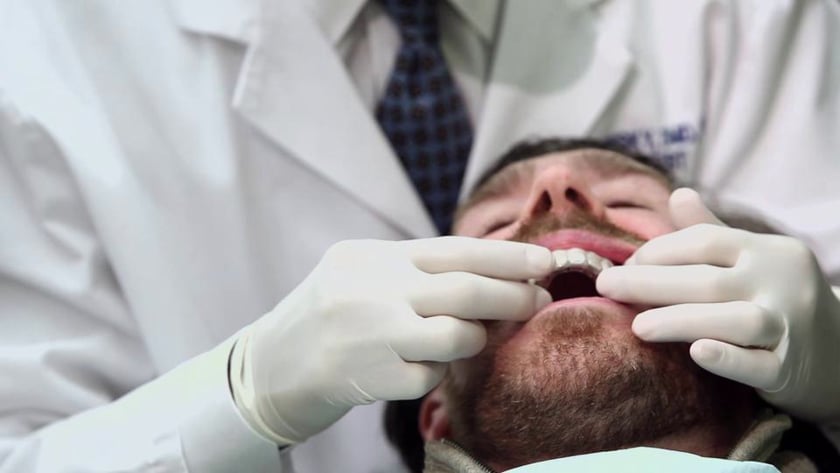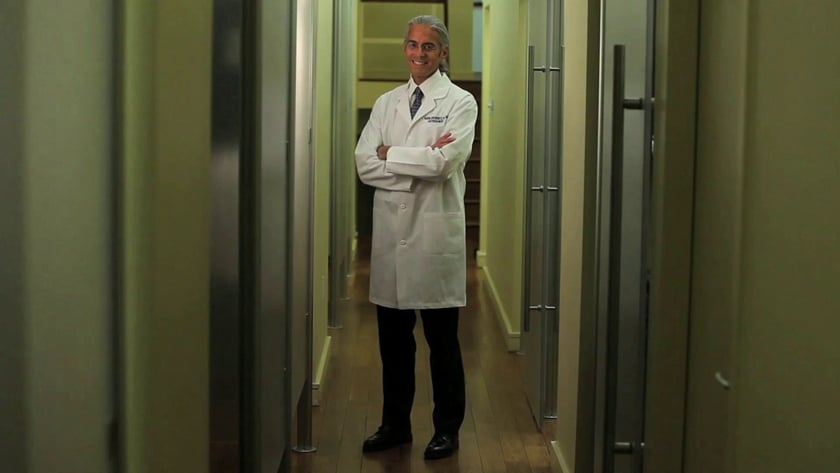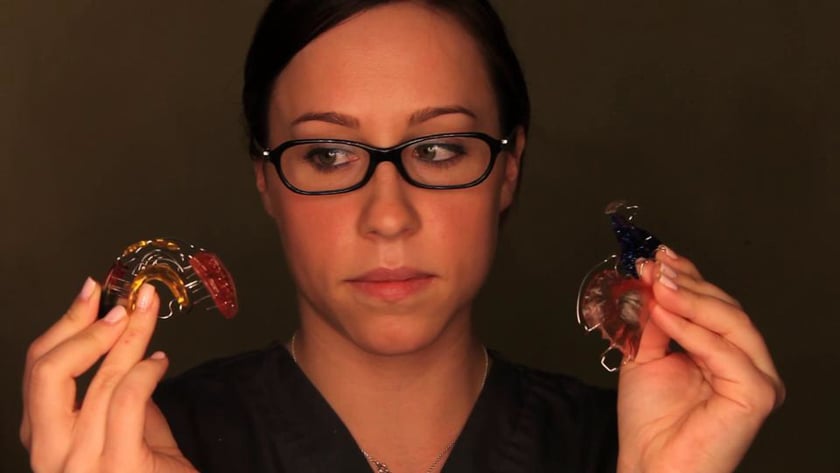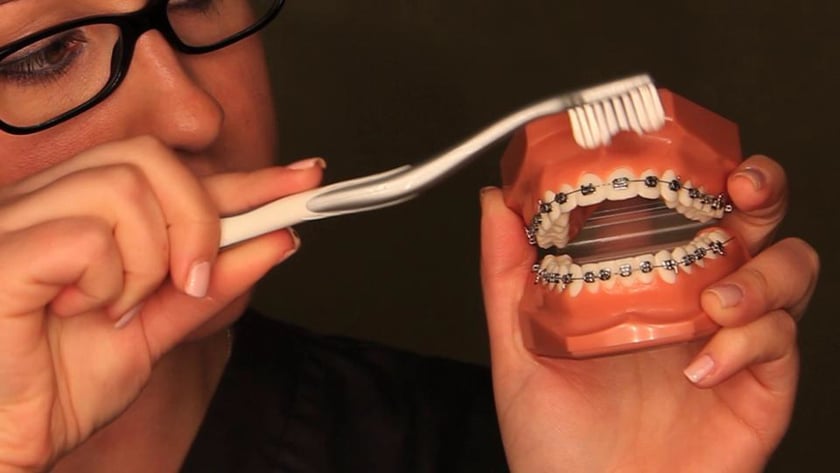Your First Visit
Congratulations! You’re taking the first step to a more confident smile. Getting braces is a big deal, but it’s easier than you might think.
As you get ready for your first appointment, you’ll probably have a lot of questions, and we will guide you through the process. We will work with you every step of the way to make sure your orthodontic care is as comfortable, convenient, and rewarding.
At the time when you schedule your consultation our Treatment Coordinator will ask you to snap a few photos for the doctors to review before your visit. We know that your schedule might be busy so you will have the option for an in-person or virtual consultation.
- Your orthodontist will examine you and then design and prescribe your treatment.
- We will review all of your treatment options.
- We will fully discuss all financial information so that there are no surprises along the way.
We are your partner — our team will explain everything you will need to know about your orthodontic treatment, so you can choose what’s best for you — no strings attached.
Financial Info
Our goal is to make orthodontic treatment affordable for everyone. Your smile is yours forever, and we want to make it as easy as possible for you to receive the best orthodontic care. We offer a range of treatment options to meet you where you are comfortable. Our practice accepts most major credit cards, cash, and Lending Point, FSA, and HSA accounts. We also accept most major insurance plans including Husky.
We also offer:
- Full-payment discount
- No-interest financing with a low down payment and low monthly payments
- Multi-family member discount
For the convenience of patients, we Auto-pay using from checking accounts or credit cards. For Flexible Spending Accounts, if your employer offers this savings option, braces will qualify as an approved medical expense.
Orthodontics 101
A healthy, functional, and attractive smile requires teeth that are straight and jaws that are well aligned. While some people have a naturally well-aligned smile, many seek orthodontic treatment to correct overcrowded teeth, a gapped smile, or teeth that have drifted out of position due to extractions, harmful oral habits, and abnormal bite patterns. In some cases, orthodontic treatment goes beyond moving the teeth into their correct positions. Orthodontic care can also address the cosmetic and functional problems associated with skeletal discrepancies between the upper and lower jaws.
Orthodontic treatment utilizes customized appliances to apply controlled, incremental forces that gently move the teeth into proper alignment. While conventional metal braces were once the only option in care, patients today have several choices. Thanks to advances in technology and innovations in care, a wider selection of treatment systems is available. These days, orthodontic appliances are far less bulky, much less noticeable, and more comfortable than earlier generations of braces.
The type of orthodontic treatment and the length of time a patient undergoes care varies, depending on the nature of the case. Orthodontic treatment ranges from the minor movement of a single tooth to the alignment of an entire bite. Although certain corrections can be achieved in a few months, more extensive ones can take a couple of years.
At the office of Bartley Family Orthodontics, we understand all aspects of oral health and the cosmetic requirements of a beautiful smile. We’re passionate about what we do and remain dedicated to helping every patient enjoy the benefit of a great looking and healthy smile. We offer a comprehensive selection of dental services to help both adults and children improve the alignment, appearance, and health, of their smiles.
What is Orthodontics?
A healthy, functional and attractive smile requires teeth that are straight and jaws that are well aligned. With orthodontic treatment you can correct the cosmetic and functional problems associated with teeth that are either overcrowded, have spaces between them, or that have shifted over time due to extractions, habits, or abnormal bite patterns. Orthodontics can also address skeletal discrepancies between the upper and lower jaws.
Orthodontic treatment ranges from the minor movement of a few teeth to the alignment of an entire bite. In certain situations, orthodontics may also be used to align the teeth before and after the surgical correction of severe jaw discrepancies.
Orthodontics utilizes the principles of physics to slowly move teeth into their proper positions. This is performed by using a selection of corrective appliances, including braces, clear aligners, and retainers. Designed to apply incremental and controlled forces to move the teeth in the desired direction, these appliances are adjusted on a regular basis throughout the course of care. Once a malocclusion is corrected and the teeth are completely aligned, retainers are often placed to help ensure that the result remains stable.
Orthodontic treatment time depends on the patient’s age, the severity of the malocclusion and the unique needs of each particular case. Some corrections can be accomplished in a few months while others can take a few years. However, for many malocclusions the average length of orthodontic treatment time is 24 months.
Why an Orthodontist?
When considering orthodontic treatment for yourself or your child, schedule a consultation visit with an orthodontist. As a specialist with several years of advanced training in the field of dentofacial orthopedics and methods of tooth movement, your orthodontist has a comprehensive knowledge of facial growth and development as well as the expertise to align teeth and improve jaw relationships. Skilled and experienced in using all types of braces and appliances, your orthodontist is well equipped to achieve the most attractive and stable outcome of care. Whether an orthodontic case requires minor tooth movement, interceptive care, comprehensive orthodontic treatment, or complex orthognathic surgery to correct significant problems with jaw development, your orthodontist is trained to provide the highest level of care.
Instructional Videos





A Guide To Eating With Braces
Congratulations on starting treatment! Now that your braces are on, it’s important that you take excellent care of them, including watching what you eat. While it may seem like an inconvenience, there are good reasons for this advice.
Braces are designed to gradually shift your teeth into their desired positions, but this process can be hindered by certain types of food. In fact, eating the wrong foods can not only prolong your treatment time, but can also cause damage to your braces and teeth.
It is important to understand that while braces are designed to be durable, they do require proper care in order for them to be most effective. This means avoiding hard, sticky, or crunchy foods that can cause brackets and wires to break or come loose.
But don’t worry, there are still plenty of options for delicious and nutritious meals that are safe to eat with braces. Here is a list of common foods you should avoid and some alternative options that you can enjoy during your treatment:
Foods to Avoid With Braces
- Hard candies such as lollipops, jawbreakers, and hard caramels
- Chewy candies like gummies, taffy, and licorice
- Nuts, popcorn, and seeds
- Hard or sticky fruits such as apples, pears, and dried fruit
- Tough meats that require excessive chewing
Foods I Can Eat With Braces
- Soft fruits like bananas, blueberries, and melon
- Cooked vegetables like carrots, squash, and broccoli
- Soft breads and pasta
- Tender meats such as chicken, fish, and ground beef
- Dairy products like yogurt, cheese, and milkshakes
It is important to note that these lists are not exhaustive and it is always best to check with our team if you are unsure about a certain food. Additionally, it is crucial to maintain good oral hygiene and brush your braces after every meal to prevent food particles from getting stuck and causing plaque buildup. In conclusion, being mindful of what you eat during your orthodontic treatment with braces is essential for achieving successful results and a comfortable treatment journey. By avoiding certain foods and opting for safe alternatives, you can ensure that your braces stay intact and your smile stays on track. Remember, the end result will be well worth the temporary sacrifices!






